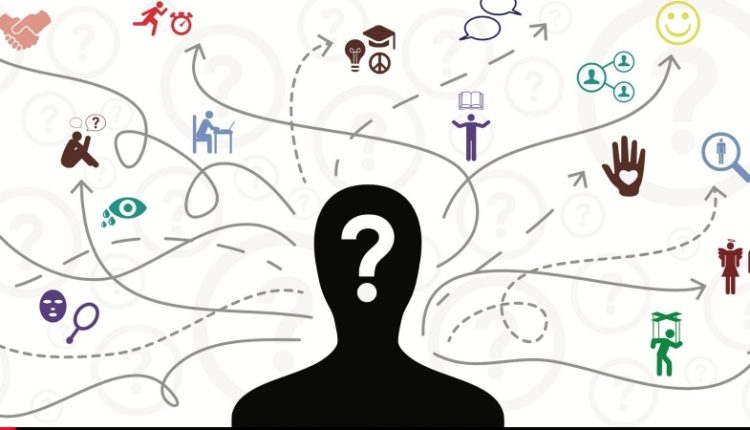The phrase attributed to circus master P.T. Barnum that “there’s a sucker born every minute” formed the basis for a classroom demonstration by Bertram Forer in 1949 showing how easy it was to turn psychology students into suckers themselves.
The Barnum effect, as it came to be known, refers to the tendency that people have to believe feedback they receive about their personalities, no matter how generic that feedback is. For some reason, being told you possess certain qualities by a supposed “expert” can convince you that you do.
You might wonder whether people have gotten savvier since the 1940s, due especially to greater scepticism about phone and email scams. However, as shown in new research by Nantes Université’s Corentin Gonthier and Noémylle Thomassin (2025), it would appear not.
What Is the Barnum Effect and Why Does It Work?
In the basic demonstration of the Barnum effect, you take a brief (but fake) “personality” test, and after it’s “scored” (no scoring takes place), you receive a bland and nonspecific set of statements that supposedly sums up your responses.
This vignette contains phrases such as “You have a great need for other people to like and admire you”; “At times you have serious doubts as to whether you have made the right decision or done the right thing”; and “At times you are extroverted, affable, sociable, while at other times you are introverted, wary, reserved.” You would then rate each statement as to how well it applies to you. If you’re like most people, you’ll rate this summary as high in believability.
As it turns out, it’s not just fake personality feedback that’s subject to the Barnum effect. Horoscopes also contain a set of bland predictions that are almost impossible to disprove.
Psychics and palm readers do the same thing when they provide “cold” readings (“You have an interesting future ahead of you”). How many times have you stopped to think that maybe, because you are a Leo, you tend to be emotionally volatile, as the horoscope predictions say you are? Realistically, you know that the millions of people in the world who share your birth day/month can’t possibly have the same personality as you do, but there’s always something plausible in the horoscope that you feel definitely does apply to you as a unique individual.
For example, doesn’t this seem to fit the “Leo profile” (adapted from a horoscope’s website): “You can easily be destabilized by what you read in the news or see in the media. Why are you saddened by the problems of the world? If you’ve felt some violence surrounding you, you will be happy to know that you can heal your wounds today.” Saddened? Destabilized? Does this only apply to Leos?
Putting the Barnum Effect to the Test With a New Generation
Gonthier and Thomassin thought that it would be interesting to see if anything’s changed in the willingness that people have to be lured in by false feedback, but they also decided that they could, as in the original Forer study, use it as a teaching tool. The subject of “psychometrics,” or the science of psychological assessment, isn’t always the most exciting topic for undergraduates, so the authors thought that pulling the Barnum effect out of the mothballs might prove to engage them as they find themselves drawn into its pull.
The “cognitive conflict” it creates by challenging students’ understanding of how tests work “should serve to actively involve students and change their preconceptions about their interest in psychometrics”. The authors found, as did I when I taught a personality psychology course, that students laughed when they saw the results while “also being impressed that the effect had worked so well on them.”
Another fascinating aspect of the Barnum effect is that it works no matter how long or short the test is, whether feedback is oral or written, and whether it’s “scored” by a human or computer. This led the authors to decide they could incorporate a short online version of a Barnum-type test into their blended learning classroom by making it an assignment.
Here are some of the items on the 30-item test (all of which are made available online); students were told that it was “a validated, state-of-the-art personality test” to reinforce its credibility:
Talking with other people gives me energy.
Things often go wrong for me without it being my fault.
I tend to procrastinate.
I get discouraged when confronted with difficulties.
In the second part of the test, students rated themselves on a 20-item “life dreams” test using items such as:
Be a hero.
Win the lottery.
Live forever.
Find a cure for cancer.
The 2,269 students completing the exercise came from four cohorts across the years 2017-2018 to 2021-2022. Their ratings of the test’s effectiveness on a 0-5 scale showed that the effect worked, with 85 percent of students rating it at a 4 or higher (i.e., 5 or 6 on a 6-point scale), with an average of 3.59.
What perhaps made the findings even more impressive, in addition to their comparability to the 1949 study, was that the effect persisted across cohorts of students who, presumably, could have tipped off students taking the course in the following year. Even better (or worse), before learning of the deception, 77 percent of the students reported that they would use the test in a professional capacity.
Relevant to the point of the study, those students who completed the Barnum exercise also reported feeling more engaged in the course than those who did not. However, the authors also reflected on the idea that maybe the topic isn’t so boring after all. Maybe it’s the way the course is taught; as they concluded, “if students tend to disengage from psychometrics courses, it is not due to students not being intrinsically interested in the subject.”
Using the Barnum Effect to Make You Wiser
This very simple and effective teaching demonstration carries several important implications. From a pedagogic standpoint, it shows that it’s a good idea to engage the imagination of your students if you’re teaching what might be an abstract set of concepts. Even if you’re not a professional teacher, you could put this study’s findings to use as you think about how to get the message across, either to children in your home or the adults you work with or share leisure interests. If you find yourself droning on and on about some abstract point, take a step back and see if you can enliven the discussion with a punchy example.
From the standpoint of becoming wiser to possible scams, the study also shows how easy it is to fall under the spell of believing what you want to believe. When you pick those nuggets out of a horoscope, are they the ones that give you hope or the ones that warn you against danger? Related to this trap, the “confirmation bias” can lead you to believe what you want to believe (the good things about yourself) and ignore those you don’t (the not-so-good).
To sum up, becoming wiser doesn’t necessarily make you sadder, but it can help you sniff out the truth when something seems just too easy to believe.



